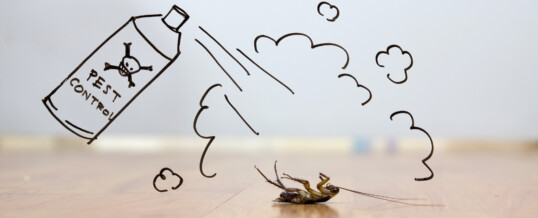
Did you know every year, termites cause over $5 billion in property damage? This figure doesn’t even include the damage they cause to crops and infrastructure. When you consider this astonishing number, you can see why pest control services have never been more in demand.
You might think that pest control services are something you only need when you have an infestation, but that conception is wrong and can end up costing you time, money, and property value. The truth is, preventative pest control services are equally, if not more valuable, than reactionary ones.
So how do you go about preventing pests? One big step is waterproofing. Waterproofing your basement and crawl space can drastically limit the number of pests you experience.
If you want to know how to make your house moistureproof and prevent home pests, read on!
What Kind of Infestations Can You Have in a Basement?
Let’s start with the pests themselves. Cockroaches, termites, pillbugs, centipedes, and more are commonly found in damp basements and crawl spaces.
Termites need two things to start infesting your home. They need water from a humid environment and a way to get in. They love damp, dark environments with lots of wood, and they can be tough to detect without a pest inspection.
For this reason, termites can cause lots of damage before you even know you have them. They’ll chew through your wooden beans, floor joints, floorboards, and any wood they can get their little pincers on.
You might associate cockroaches with sewers, but they actually are commonly found in basements too! This is because basements offer a moist, dark environment suitable to their breeding cycle.
Roaches don’t just look disgusting; they ARE disgusting. Studies have revealed that they carry a tremendous amount of bacteria. They can breed quickly and contaminate your food supplies.
Pillbugs, colloquially known as rollie pollies, are small armored creatures usually found outside. They also love dark, moist basements and crawl space because they can’t live long without water. They’ll set up shop and start reproducing!
Centipedes can also live in your basement and can deliver a painful and sometimes venomous bite. They eat other insects, so they will also love your basement areas where food sources are likely.
Rodents
You might think your basement is ratproof, even if it’s not totally sealed. But rats are resourceful, and they can get in almost anywhere. Rats love basements, especially the Norway rat, a common rat in the US.
Rats can give you a real scare and cause lots of damage in your basement. They love to chew on anything from wiring to drywall to insulation to personal items.
Furthermore, they are equally as unhealthy as they are unappealing. Their waste can be a potential allergen, and they’ve been associated with an increased presence of mold. They can also cause disease and bring fleas and ticks with them.
Norway rats carry diseases like murine typhus, salmonellosis, and more. They also carry fleas, mites, and other parasites that can spread to pets or even humans and bring even more diseases to your home.
Preventative Pest Control
At best, pest infestations are gross. At worst, they can cause damage and spread disease to your household. Either way, it’s best to stop an infestation before it has a chance to start.
This is where waterproofing your basement with a crawl space encapsulation comes in.
A crawl space encapsulation closes up your entire crawl space. Experts will seal the ceiling, walls, and floors with caulk and other materials. Following this, they’ll likely use a dehumidifier to remove any existing moisture from your crawl space.
A crawl space encapsulation has many benefits for your home and health, but it can also benefit you when pest control.
Remember that all these creatures need two things to infest your house: moisture and an entry point. Waterproofing your basement takes away both of these things.
Reduce Moisture
The most important part of waterproofing is preventing water from entering the basement. This means more than addressing leaks as they happen, but stopping even small amounts of moisture that makes your basement damp.
Windows, cracks, and walls must all be sealed to prevent even a drop of water from entering your basement. During this service, experts will also check out any plumbing in the basement. If your drains are backing up or leaking, these problems should also be addressed.
Another bonus – reducing basement and crawl space moisture can prevent mold, mildew, and fungus too.
Additional benefits of crawl space encapsulation include saving energy, better fire safety, and better thermal insulation.
Restrict Access
The next pest control advantage of waterproofing your basement is that small gaps in the wall and foundation are sealed, preventing pests and bugs from entering the home in the first place.
In a crawl space encapsulation, vents, windows, and drains will be sealed, and caulk will close up leaks or other cracks. This ensures that big gaps are closed to prevent rodents, in addition to small gaps that can let in termites and other bugs.
If you don’t have an existing infestation, or you’ve had to call pest control services before, this is the best way to prevent future infestation and keep your home safe.
Waterproof Your Basement and Crawl Space Today!
Hopefully, this article has convinced you of the overwhelming benefits of waterproofing your basement. There are many benefits to it, including a form of preventative pest control. No one wants uninvited pests in their house, so stop them before they have a chance to get in!
Check out our Armored Basement Waterproofing System, the most advanced and comprehensive system to keep your basement clean and pest-free! Call us today with any questions or to get a free inspection!
ShareOCT
